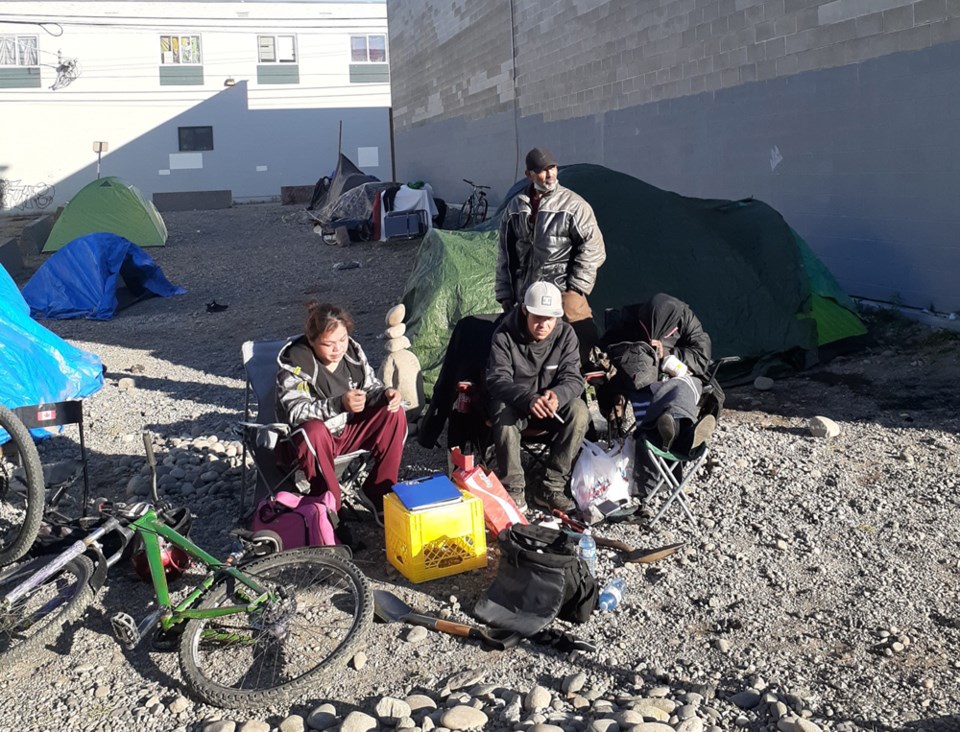Only when a person recognizes their privilege do they appreciate the power and ignorance it affords them.
Bob Stewart’s piece on Prince George’s population of people experiencing homelessness is tone deaf, especially in light of the news out of Kamloops this past week. Are we really still at the point where we shame and blame individuals for their misfortunes, traumas and negative life experiences that contribute to homelessness? Words and phrases like “deserve,” “earn,” “accomplishment,” “lowest sides of society” and “street crawlers” simultaneously blame and dehumanize people experiencing homeless.
It is no secret that individuals experiencing homelessness are navigating addiction and may be involved in other activities that society likes to pretend don’t exist in our communities. If only the solution to solving addiction and negative experiences that contribute to homelessness were as simple as finding the motivation and drive to change their experience. It seems that we as a community forgot that addiction is not a choice, and that there are so many factors that contribute to addiction, trapping individuals in a dark cycle. No amount of willpower or motivation or recognizing it’s “time to change” will “free” people of this experience.
Bob speaks of the successes he’s observed in rehabilitation through his work in corrections. As someone who has also worked in a corrections setting at Camp Trapping, I am disappointed that a colleague in an adjacent field neglects that the conditions in corrections facilities are very different than those on the streets, and that this is why Bob sees success (although to be honest, I am hesitant to believe this as our corrections system is very broken).
Specifically, while in a corrections facility, individuals have their most basic needs met in ways that are impossible on the streets. They are protected from the substances that make them sick and they have access to shelter and safety. I’m not surprised that Bob has witnessed success in the corrections setting, but it is problematic to frame it as individuals deciding it was “time to change.”
Perhaps if we were to replicate the same conditions at PGRC or PGYC (that is, providing shelter, food, educational opportunities, cultural supports, counseling supports, nourishment and a sense of safety), Prince George would not be stuck in this pointless and stigmatizing debate.
When I see the tents downtown, I don’t see it as a nuisance or something that needs to be removed or cleaned up. Rather, I see it as a community of people who are struggling and coping as best they know how. This community is deserving of our compassion and empathy; connection goes so much further than abstinence when it comes to addiction treatment. By all means, please throw more money at this “problem.” Let’s invest money into affordable housing, better subsidies. Heck, let’s throw money at expanding the capacity of our treatment centres, let’s put it towards harm reduction and towards removing systemic discrimination and other barriers to “success.”
You bet I’ve observed how people can overcome addiction and homelessness and change their lives, but I promise it was not the result of a simple change in mindset. It’s because they had been shown love, kindness and compassion, sprinkled in with life skills education, confidence-boosting physical education and I repeat: because their basic needs were being met in ways that are impossible while street-entrenched. How are you supposed to focus on improving your situation if you’re constantly in fight or flight survival mode?
Instead of criticizing this vulnerable community, let’s demonstrate compassion and empathy, something I know Prince George is capable of.
Sara Heembrock
Prince George



